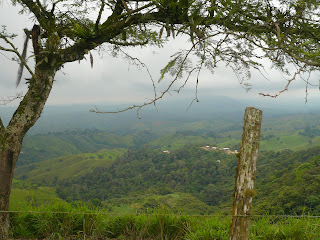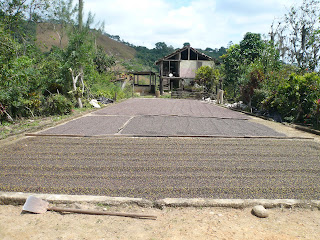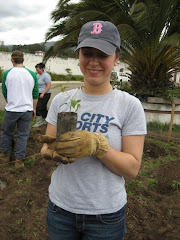 Cows outside my window.
Cows outside my window. Mother´s Day lunch with my host family.
Mother´s Day lunch with my host family. Looking down on La Victoria.
Looking down on La Victoria.
 Making organic fertilizer with members of the coffee association.
Making organic fertilizer with members of the coffee association. This flower is the size of my head.
This flower is the size of my head.
 Coffee drying on the ground. This method reduces the price farmers can get for it on the market.
Coffee drying on the ground. This method reduces the price farmers can get for it on the market.

The Association´s processing plant.
 Mother´s Day lunch with my host family.
Mother´s Day lunch with my host family. Making organic fertilizer with members of the coffee association.
Making organic fertilizer with members of the coffee association.

